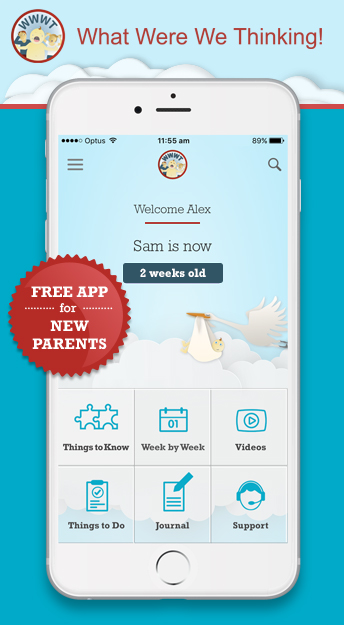Looking after you, looking after your baby

No one can possibly tell you what it feels like to be pregnant, to give birth to a baby or to become a new parent. These are deeply personal experiences and are different for everyone. It is a time of great change and challenge, often bringing feelings of joy and celebration, and potentially also feelings of worry and anxiety.
Many new and expectant parents worry about how a new baby will fit into their lives, or how they will care for an infant. It’s important to remember that if you’re feeling worried and anxious during this period, you’re not alone and these are common reactions that many new parents have.
In fact, up to one in seven women who are pregnant or have recently given birth experience perinatal depression and anxiety (perinatal refers to the time from when pregnancy begins to the first year after the baby is born). Partners can experience mood problems too, so it is important that you are both well supported during this time.
When you are pregnant or have a baby, there are lots of changes going on, from physical and hormonal changes to big adjustments in your sleeping patterns and daily routine; it might feel like things are out of your control, that there is so much to learn and that sometimes it’s difficult to cope.
The good news is, there are lots of things that can be done to support yourself and/or your partner during this time in your lives.
Signs and symptoms to look out for
The signs and symptoms of perinatal depression and anxiety can vary from person to person and may include:
- Excessive worry or fear that is difficult to control. Often the worry and fears are focused on the health or wellbeing of the baby, or your abilities as a mum
- Losing interest in the things you usually enjoy
- Fear of being alone with your baby
- Feeling low most of the time, or crying for no good reason
- Physical symptoms – such as decreased energy, a change in appetite, difficulty sleeping even when you have the opportunity, increased heart/breathing rate, tight chest and feeling lightheaded
- The development of obsessive or compulsive behaviours; for example, needing to do the same task a number of times when it doesn’t need repeating
- Thoughts of death or suicide
If you feel that your worries, anxiety or low mood are interfering with your health, relationships, daily life or ability to care for yourself or your baby, then it is time to get some help and support.
Getting the right help and advice

Start early! Managing mood symptoms well during pregnancy can make a big difference to how things go when your baby is born.
Your general practitioner (GP) or maternal child health Nurse are both great sources of support. If you are unsure about talking with a doctor or health professional, reach out to a trusted friend, family member or your partner. Remember, if it is urgent, please call Lifeline on 13 11 14.
There are also many pregnancy and parenting websites, blogs and apps available. It’s important to make sure the information that you’re accessing is reliable – pick one or two sources you trust and stick with them.
Download the What Were We Thinking! app or learn more about perinatal depression and anxiety.
Posted in: Your needs








